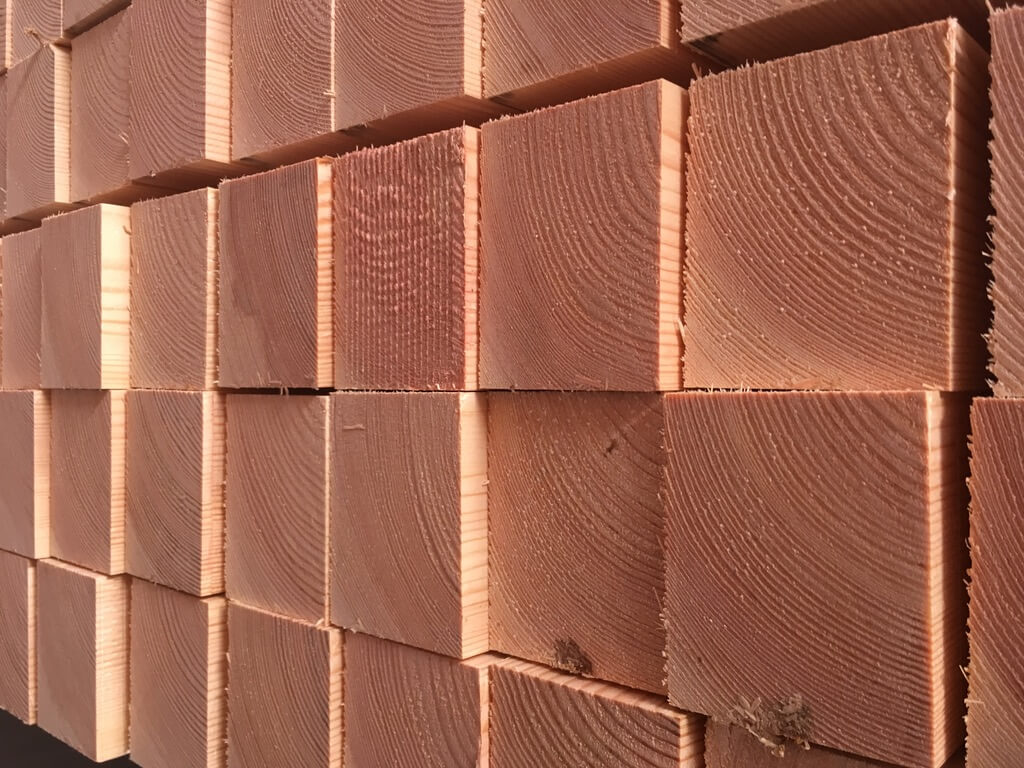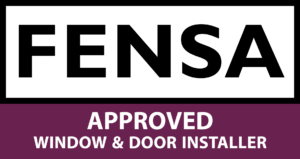Timber Windows vs Aluminium Windows
What should you choose? As a supplier of both timber and aluminium windows (and a hybrid of the two which we’ll explain later!), we hope we can offer a factual and unbiased opinion based on our experience. The choice depends on both the characteristics of the building and what you, the owner, really wants from your windows. We’ll highlight the properties of both solutions and thereby hope to provide a little help along the way.
The quick, simple comparison
| Timber | Alu-clad Timber | Aluminium | |
| Relative Cost | Least expensive | Most expensive | More expensive than timber |
| Energy Efficiency (Double glazed) | Almost always compliant with building regs (1.4Uw) | Often unsuitable due to building regs | |
| Energy Efficiency (Triple glazed) | Close to or better than passive house standards (0.8Uw) | Similar to double glazed timber | |
| Maintenance | Yearly checks for wear, with repainting often recommended every 5 years | Should never need repainting | |
| Common Window Frame Thickness | Opening Window 90mm Fixed window 50mm | Opening Window 60mm Fixed window 50mm | |
| Special Options | Lacquered internal timber available | Sliding doors well over 3 meters wide | |
| Recommended use case | Almost everything | ‘Forever home’ situations, where cost is not the limiting factor | Specialty items and homes with stone mullions |
Windows in Timber
Generally, wooden windows are the classic choice for many people. Wood is a remarkable material: with proper maintenance and proper professional structures, the wood will still appear completely “fresh” for many years.
Timber is a material that is easy to process with excellent natural insulating properties, which also makes it relatively cheap to produce windows and doors in wood.
Many people choose to make the classic choice for aesthetic reasons, as it has a much softer and warmer appearance compared to a metal frame. In a lighter colour, having painted timber frames on the inside of a house tends to look much more homely.
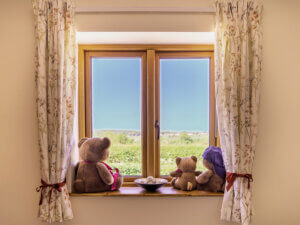
See more in our Carefully-Designed Leicestershire New Build gallery.
Most of our series is made of Nordic pine heartwood from the timber forests of Northern Sweden and Finland, where the trees are slow-growing due to the harsh climate, forming a solid, hard core that is very stable and moisture resistant. All external surfaces and joints are at least 90% heartwood. Guaranteed knot-free products are worth considering, as even the smallest of timber knots can create unsightly bleeding through. STM Sapino and Vrogum Rosenholm are both made from engineered, finger-jointed timber, so all knots are removed before it gets anywhere close to being a window.
This slow-grown Nordic pine is arguably the best material when considering insulation, longevity and value. It’s a fantastic option in almost every use-case.
Windows in Aluminium
We’ve found that the main reason why people initially aim towards aluminium windows, instead of timber, is the low-maintenance aspect. This is obviously an important point to consider as I would argue that no one really wants to think about repainting windows after few years. It hugely depends on the product and the location of the house, so the amount of time before a timber window needs repainting varies between 5 and 30 years.
Since aluminium removes that uncertainty, it can be a popular choice for a fit-and-forget solution.
If your home has thin stone mullions, aluminium is certainly the best way to go. It’s very rare to find any system that can be made with a depth small enough to fit properly. Since the traditional option would have been steel, but most people prefer their windows to actually be able to insulate, a thermally-broken aluminium frame is really the only way to go. Even though aluminium isn’t the best insulator by a long way, it will be a huge improvement over a steel frame, and Alitherm Heritage is a great example of this.
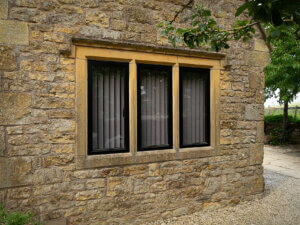
See more in our Ilmington Farm House gallery.
Aluminium is also far better when creating large frames. You’ll find that almost all of the most popular sliding doors systems are made from aluminium, and timber alternatives normally have far more restrictive maximum sizes. Our Sunflex sliding doors are available in much larger sizes than any of our other products, we only ask that customers consider the weight implications of doing so. Opening and closing a 200kg glass unit isn’t going to be easy in any system!
For performance-focused renovations and new builds, a normal-sized aluminium window is a more debatable… We’ve never come across an aluminium system that achieves the airtightness and Uw value that’s displayed on paper in real life. This is mainly thanks to a part of UK building regulations that allows a Uw value for any size of window to be declared as the the same Uw as a “standard” window size. And this obviously can be wildly different depending on what size windows you need. We’ve recently really struggled to pull an aluminium casement down to an acceptable level for a newbuild property and, whilst it did reach a Uw of 1.4 with a very high-spec glass unit, an equivalently-sized timber window could have easily surpassed 1.0.
Considering the direction that building regulations are now heading, we struggle to recommend aluminium windows for these types of projects – it’s certainly not something we would do in our own homes.
All U-values are measured in W/m2k or Watts per square meter kelvin, our Window U Value Explained blog has more information.
The Best of Both Worlds?
Really, what we need is a product that has all the insulation and homeliness of timber, but with the low-maintenance of aluminium… So, conveniently, here it is!
Aluminium-clad timber windows require almost no maintenance of the exterior surfaces, and the majority of the system behind that aluminium external barrier is timber.
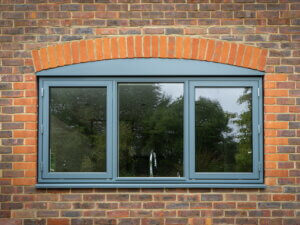
See more in our Hampshire Major Home Renovation with Danish Windows gallery.
In some options, there is an additional insulator, embedded in the structure between the outer aluminium envelope and the interior wooden structure. This is made of a durable composite that forms a thermal bridge that physically separates the interior wooden structure. This is even better for durability, and means that, unlike most standard alu-clad systems, the product can be rendered-to.
By far, this is our most popular material choice for windows and doors. You can read lots more about this option in our composite windows article: Top 3 Reasons to Choose Aluminium-Clad Timber Composite Windows
Contact us!
For any questions about our products and services, or to get your quote,
please get in touch by phone, email, or using our in-browser contact form!
Leamington: 01926 935 607
London: 0203 633 0476
E-mail : sales@enlightenedwindows.co.uk
Contact Form: Contact Us



